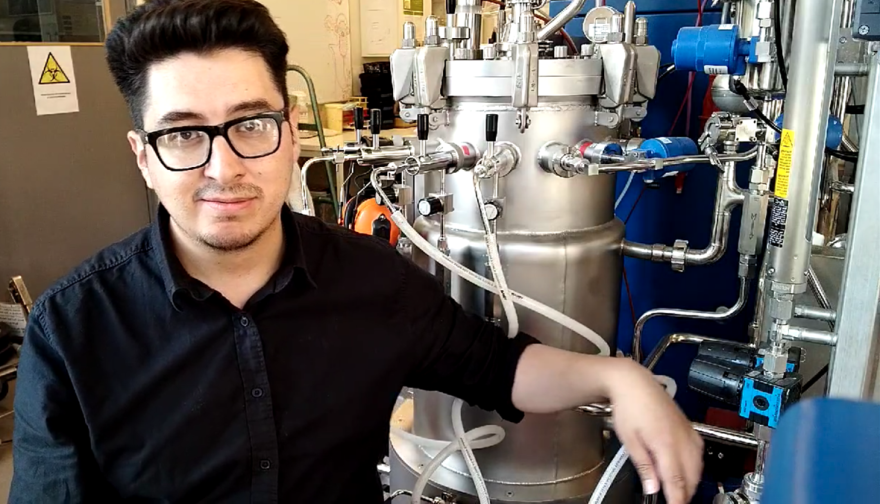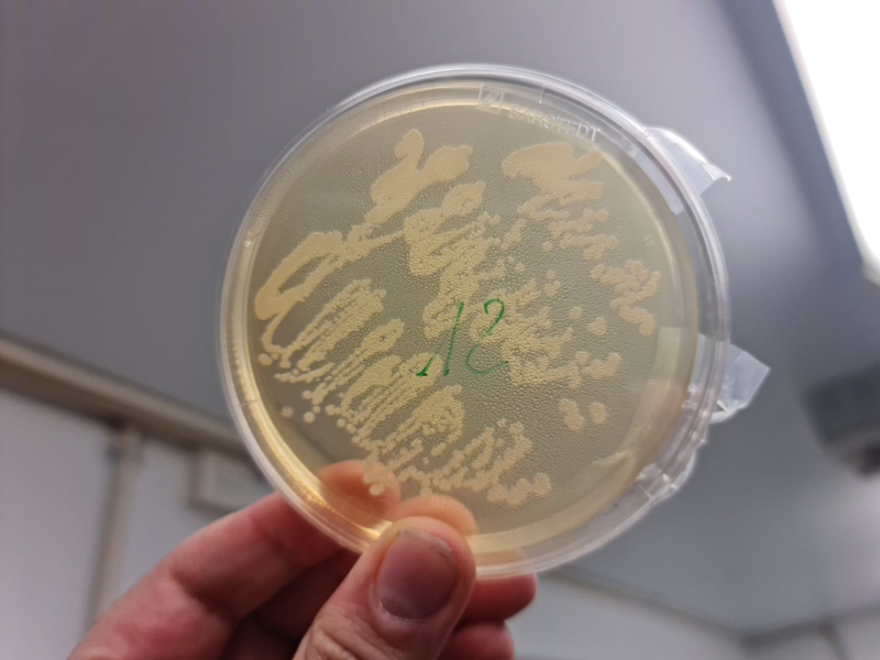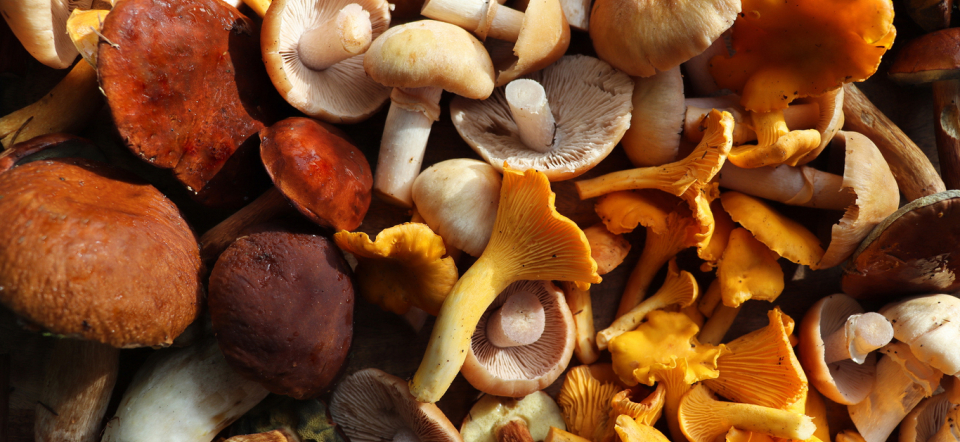The project Mushroom-Based Processes for Increased Local Production of Non-Meat Protein and Enhanced Resource Efficiency (MuSA), is an initiative aimed at transforming agricultural waste into valuable materials. The project focuses on using “spent mushroom substrate” (SMS), a byproduct of mushroom farming, to create biomaterials and sustainable alternatives to traditional resources.
Luis Alejandro Romero-Soto from Inland Norway University of Applied Sciences, originally a chemical engineer from Bolivia with a PhD in biotechnology engineering, is one of the researchers involved in the project. Romero-Soto explains the essence of the project in simple terms:
"We are essentially deconstructing agro-waste as if it was Lego pieces and using microbes to rebuild those pieces into something entirely different, such as biopolymers. Biopolymers are natural polymers produced by or derived from living organisms such as plants and microorganisms, as opposed to synthetic polymers. "
This approach allows for the creation of sustainable materials from waste, which could help reduce reliance on non-renewable resources while addressing the increasing demand for food and materials in a climate-conscious way. Thus, to some extend the project also has a built-in circular economy component.

Photo: Private.
Possible solutions to complex climate issues
The MUSA project is still in its early stages, but researchers like Romero-Soto are already making significant strides. One of the initial challenges was to determine whether the microbes could effectively convert SMS into useful materials.
"Our first question was whether the microbes would indeed like the food we are providing them, and the results were promising," Romero-Soto reveals. This success has opened the door to further exploration, including how to optimize microbial growth and biopolymer production.
Romero-Soto and MuSA team are now focused on improving the bioprocess, looking for ways to make it even more efficient and scalable. This research could have a major impact on how industries deal with agro-waste, particularly in mushroom farming, which is expected to expand as a more climate-friendly protein source compared to traditional meat.
Addressing Climate Change with Biorefinery
At the heart of the MUSA project is the concept of biorefinery—a process that seeks to use natural resources more efficiently while reducing waste and emissions. Romero-Soto underscores the importance of this research in the context of climate change:
"Climate change is such a big and complex problem that no single research group can make a significant dent on it alone. We need projects like MuSA that cover different aspects of this monster of a problem."
By transforming waste into useful materials, MuSA offers a practical solution to two major global issues: resource scarcity and environmental sustainability. The ability to produce biopolymers from agro-waste not only creates a sustainable alternative to fossil-fuel-based materials but also helps reduce the waste generated by industries like mushroom farming.

The importance of mobility and networking
Mobility plays a critical role in modern research, especially in collaborative environments like the Nordic region. Romero-Soto highlights how mobility strengthens these relationships:
"Mobility is essential for getting to know your potential partners, and they might be in the neighbouring country. Without mobility, you are missing out on those opportunities."
Romero-Soto emphasises that the problems researchers aim to solve today are too large to tackle from a single perspective. Collaborative efforts across borders allow different experts to bring their unique strengths together, making projects like MuSA possible. Through the opportunities provided by mobility, Romero-Soto has developed partnerships and laid the groundwork for future collaborations that are vital for addressing the global challenges we face today.
The MuSA project is 1 out of 7 projects under the Nordic Initiative for Sustainable Agriculture and Climate Change.
Meet Alejandro Romero-Soto – a young researcher
Photo: Innland Norway University of Applied Sciences.
An important aim of the NordForsk initiative on Sustainable Agriculture and Climate Change is to support early career researchers and their mobility. That is, entering the world of research as a young professional is often a challenging path.
Alejandro Romero-Soto knows this struggle all too well. Originally from Bolivia, in South America, Romero-Soto worked in Sweden and now contributes to the NordForsk-funded MuSA project in Norway. Despite his qualifications, Romero-Soto acknowledges that one of the biggest barriers to entering research as a young professional is the need for strong networks.
"Networking takes a lot of trust to be effective," he says. "If you are not directly associated with a researcher that already has a reputation, it’s difficult to get people interested in working with you, even if you have some evidence like a PhD thesis and all the research that was carried out to produce it."
Romero-Soto’s experience, however, took a positive turn when he began working under the leadership of Carlos Orestes Martín Medina, the project leader of MuSA. This support has allowed him to establish connections across Europe and beyond, including with researchers in Brazil, Lithuania, and Sweden.




